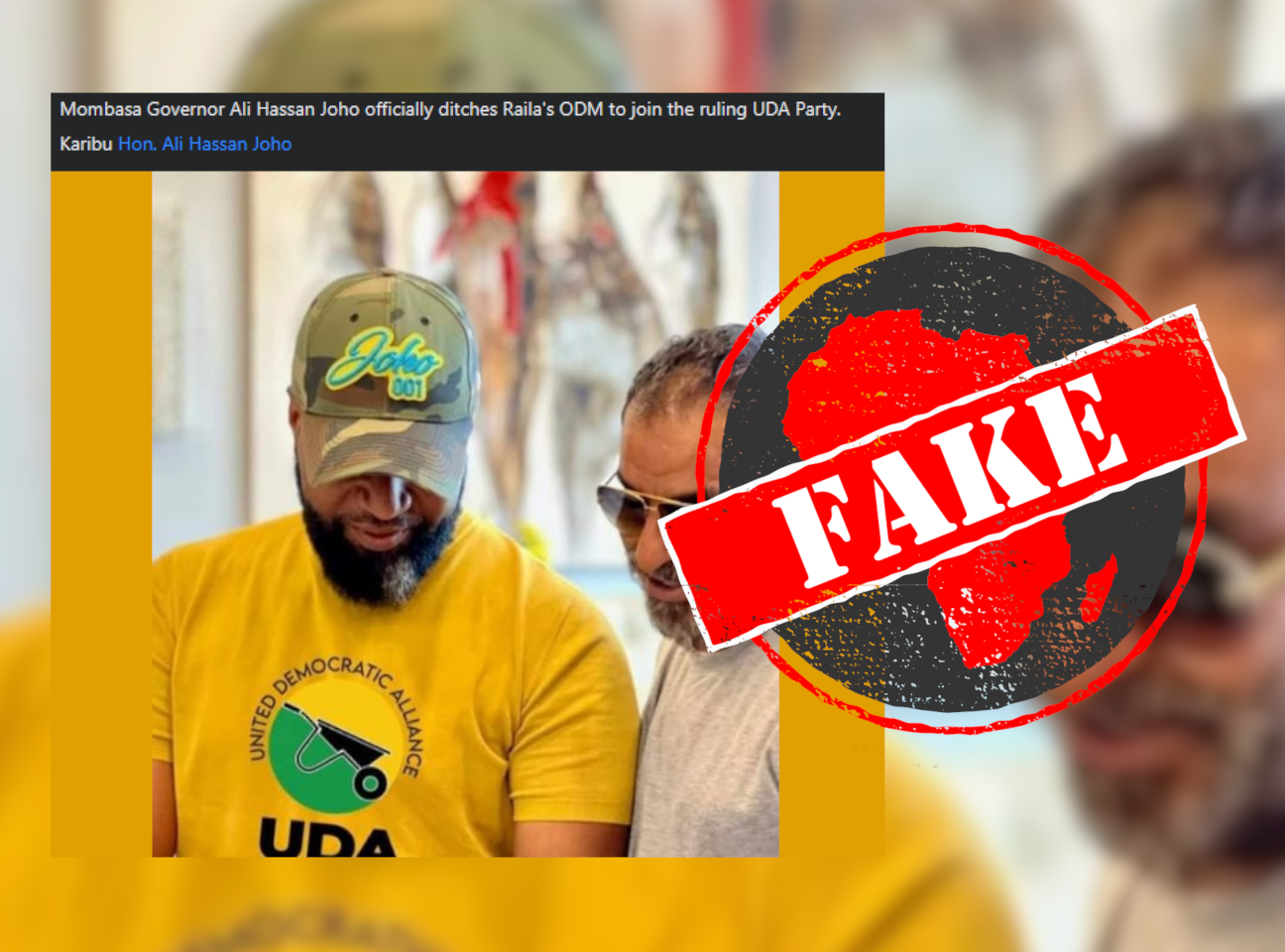IN SHORT: As an influential supporter of the opposition, Joho's alleged defection would have been a major news event. But it didn't happen, as claimed online.
Influential former governor of Mombasa county, Hassan Joho, has kept a low profile since the 9 August 2022 general elections.
William Ruto was declared the presidential winner by Kenya’s electoral commission.
But leader of the opposition Azimio la Umoja coalition Raila Odinga, whom Ruto defeated, rejected the outcome even after the supreme court upheld it.
Odinga has been at the forefront of protests since 20 March 2023 against the high cost of living and the election result, among other issues.
Joho, who is an ardent supporter of Odinga, resurfaced during Eid prayers in Mombasa in June despite rumours that he had retired from politics. He previously revealed that he was battling health problems but assured Azimio of his unwavering support.
It is in relation to this that a Facebook user has posted an image of Joho, with the claim that he has shifted camp and has now joined Ruto’s United Democratic Alliance (UDA).
Joho is seen wearing a yellow T-shirt with the UDA logo and branding, standing next to Taufiq Balala, a former county executive.
The image’s caption reads: “Mombasa Governor Ali Hassan Joho officially ditches Raila’s ODM to join the ruling UDA party. Karibu Hon. Ali Hassan Joho.”
Karibu is a Kiswahili word meaning welcome.
The post has also been published here, here, here, here, here, here and here.
But is the claim true?

Ignore doctored image
A Google reverse image search of the image yielded no results about its origin.
We also searched Joho's social media posts and could not find the image.
However, we found that on 29 June, Balala posted a photo on Instagram of himself standing next to Joho.
Joho was wearing an unbranded yellow T-shirt and blue jeans.
The image in the claim has been manipulated.
Republish our content for free
For publishers: what to do if your post is rated false
A fact-checker has rated your Facebook or Instagram post as “false”, “altered”, “partly false” or “missing context”. This could have serious consequences. What do you do?
Click on our guide for the steps you should follow.
Publishers guideAfrica Check teams up with Facebook
Africa Check is a partner in Meta's third-party fact-checking programme to help stop the spread of false information on social media.
The content we rate as “false” will be downgraded on Facebook and Instagram. This means fewer people will see it.
You can also help identify false information on Facebook. This guide explains how.


Add new comment